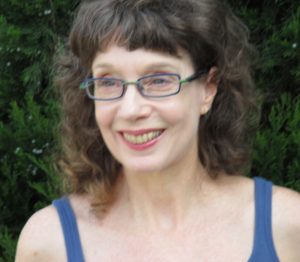 Linda P. Austern, Professor of Musicology, is a specialist in Early Modern English and European musical-cultural relations and gender/sexuality studies. She is the author of Music in English Children’s Drama of the Later Renaissance (1992) and Both From the Ears and Mind: Thinking About Music in Early Modern England (Chicago, 2020), as well as the editor of Music, Sensation, and Sensuality (2002) and co-editor of Music of the Sirens (2006), Psalms in the Early Modern World (2011), and Beyond Boundaries: Rethinking Music Circulation in Early Modern England (2017). The recipient of major fellowships and research grants, including from the American Council of Learned Societies, the British Academy, the Mary Ingraham Bunting Institute (Radcliffe College/Harvard University), and the National Endowment for the Humanities, she has published numerous articles in books and journals such as Journal of the American Musicological Society, Modern Philology, Music and Letters, and Renaissance Quarterly, including “Manipulating Music at the Court of Elizabeth I,” Journal of the Royal Musical Association (2017), and “Music, Its Histories, and Shakespearean (Inter-)Theatricality in Beaumont’s Knight of the Burning Pestle,” in Shakespeare, Music, and Performance (Cambridge, 2017). Recent and forthcoming graduate seminars include “Tudor Music” (MUSICOL 351/451), offered in Fall 2019, “Music in Henry Purcell’s England” (MUSICOL 452), to be taught in Winter 2019, and “Shakespeare and Music” (MUSICOL 443). l-austern@northwestern.edu
Linda P. Austern, Professor of Musicology, is a specialist in Early Modern English and European musical-cultural relations and gender/sexuality studies. She is the author of Music in English Children’s Drama of the Later Renaissance (1992) and Both From the Ears and Mind: Thinking About Music in Early Modern England (Chicago, 2020), as well as the editor of Music, Sensation, and Sensuality (2002) and co-editor of Music of the Sirens (2006), Psalms in the Early Modern World (2011), and Beyond Boundaries: Rethinking Music Circulation in Early Modern England (2017). The recipient of major fellowships and research grants, including from the American Council of Learned Societies, the British Academy, the Mary Ingraham Bunting Institute (Radcliffe College/Harvard University), and the National Endowment for the Humanities, she has published numerous articles in books and journals such as Journal of the American Musicological Society, Modern Philology, Music and Letters, and Renaissance Quarterly, including “Manipulating Music at the Court of Elizabeth I,” Journal of the Royal Musical Association (2017), and “Music, Its Histories, and Shakespearean (Inter-)Theatricality in Beaumont’s Knight of the Burning Pestle,” in Shakespeare, Music, and Performance (Cambridge, 2017). Recent and forthcoming graduate seminars include “Tudor Music” (MUSICOL 351/451), offered in Fall 2019, “Music in Henry Purcell’s England” (MUSICOL 452), to be taught in Winter 2019, and “Shakespeare and Music” (MUSICOL 443). l-austern@northwestern.edu
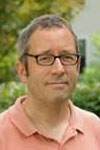 Bruce Carruthers, John D. and Catherine T. MacArthur Chair and Professor of Sociology, specializes in historical and comparative sociology, economic sociology, the sociology of law, and the sociology of organizations. At Northwestern, he is involved in the graduate Comparative Historical Social Science (CHSS) program and the undergraduate Business Institutions Program (BIP). He has authored or co-authored five books: City of Capital: Politics and Markets in the English Financial Revolution (1996); Rescuing Business: The Making of Corporate Bankruptcy Law in England and the United States (1998); Economy/Society: Markets, Meanings and Social Structure (2000); Bankrupt: Global Lawmaking and Systemic Financial Crisis (2009); and Money and Credit: A Sociological Approach (Polity, 2010). His current research includes a study of the historical evolution of credit as a problem in the sociology of trust; regulatory arbitrage; what modern derivatives markets reveal about the relationship between law and capitalism; and the regulation of credit in Britain and the U.S. b-carruthers@northwestern.edu
Bruce Carruthers, John D. and Catherine T. MacArthur Chair and Professor of Sociology, specializes in historical and comparative sociology, economic sociology, the sociology of law, and the sociology of organizations. At Northwestern, he is involved in the graduate Comparative Historical Social Science (CHSS) program and the undergraduate Business Institutions Program (BIP). He has authored or co-authored five books: City of Capital: Politics and Markets in the English Financial Revolution (1996); Rescuing Business: The Making of Corporate Bankruptcy Law in England and the United States (1998); Economy/Society: Markets, Meanings and Social Structure (2000); Bankrupt: Global Lawmaking and Systemic Financial Crisis (2009); and Money and Credit: A Sociological Approach (Polity, 2010). His current research includes a study of the historical evolution of credit as a problem in the sociology of trust; regulatory arbitrage; what modern derivatives markets reveal about the relationship between law and capitalism; and the regulation of credit in Britain and the U.S. b-carruthers@northwestern.edu
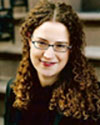 Deborah Cohen, Richard W. Leopold Professor of History and Executive Director of the Buffett Institute for Global Affairs, works in modern British history, European history and global history. Her interests run the methodological gamut, from social science-inspired comparative history to biography. Her books include Last Call at the Hotel Imperial: The Reporters Who Took on a World at War (2022), Family Secrets: Shame and Privacy in Modern Britain (2013), Household Gods: The British and their Possessions (2006), and The War Come Home: Disabled Veterans in Britain and Germany (2001). She has recently published on Anglo-Argentines and the history of family capitalism and on American foreign correspondents. She serves on the editorial board of Past & Present and with Margot Finn and Peter Mandler, co-edits the Cambridge University Press book series, Modern British Histories. deborah-cohen@northwestern.edu
Deborah Cohen, Richard W. Leopold Professor of History and Executive Director of the Buffett Institute for Global Affairs, works in modern British history, European history and global history. Her interests run the methodological gamut, from social science-inspired comparative history to biography. Her books include Last Call at the Hotel Imperial: The Reporters Who Took on a World at War (2022), Family Secrets: Shame and Privacy in Modern Britain (2013), Household Gods: The British and their Possessions (2006), and The War Come Home: Disabled Veterans in Britain and Germany (2001). She has recently published on Anglo-Argentines and the history of family capitalism and on American foreign correspondents. She serves on the editorial board of Past & Present and with Margot Finn and Peter Mandler, co-edits the Cambridge University Press book series, Modern British Histories. deborah-cohen@northwestern.edu
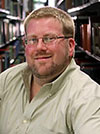 Drew E. Davies, Associate Professor of Musicology and Chair of the Department of Music Studies, is a specialist in several musical traditions, including in 20th-century Britain. Among his research interests is a focus on English art song, and his articles and reviews have appeared in journals such as Eighteenth-Century Music, Sanctorum, Journal of the Society for American Music, and The Courtesan’s Arts: Cross-Cultural Perspectives. His monograph, Music and Devotion in New Spain, is under contract with Oxford University Press. He frequently collaborates with early music ensembles and has been a presenter at academic conferences throughout Britain and the U.S. dedavies@northwestern.edu
Drew E. Davies, Associate Professor of Musicology and Chair of the Department of Music Studies, is a specialist in several musical traditions, including in 20th-century Britain. Among his research interests is a focus on English art song, and his articles and reviews have appeared in journals such as Eighteenth-Century Music, Sanctorum, Journal of the Society for American Music, and The Courtesan’s Arts: Cross-Cultural Perspectives. His monograph, Music and Devotion in New Spain, is under contract with Oxford University Press. He frequently collaborates with early music ensembles and has been a presenter at academic conferences throughout Britain and the U.S. dedavies@northwestern.edu
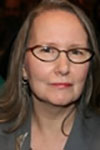 Tracy C. Davis is Barber Professor of Performing Arts and Professor of Theatre and English. She specializes in 19th-century British and comparative theatre history, gender and theatre, and performance theory. She co-directs the [six!] Summer Institute, an interdisciplinary initiative involving Northwestern, the University of Cologne (Germany), University of Ghana, Jawaharlal Nehru University (New Delhi), Pontifical Catholic University of Chile (Santiago), and Tel Aviv University, which brings together doctoral students to study theatre historiography and other topics. Her books and edited collections include Actresses as Working Women: Their Social Identity in Victorian Culture (1991); George Bernard Shaw and the Socialist Theatre (1994); Playwriting and Nineteenth-Century British Women (1999); The Economics of the British Stage, 1800-1914 (2000); Theatricalit
Tracy C. Davis is Barber Professor of Performing Arts and Professor of Theatre and English. She specializes in 19th-century British and comparative theatre history, gender and theatre, and performance theory. She co-directs the [six!] Summer Institute, an interdisciplinary initiative involving Northwestern, the University of Cologne (Germany), University of Ghana, Jawaharlal Nehru University (New Delhi), Pontifical Catholic University of Chile (Santiago), and Tel Aviv University, which brings together doctoral students to study theatre historiography and other topics. Her books and edited collections include Actresses as Working Women: Their Social Identity in Victorian Culture (1991); George Bernard Shaw and the Socialist Theatre (1994); Playwriting and Nineteenth-Century British Women (1999); The Economics of the British Stage, 1800-1914 (2000); Theatricalit
 Christine Froula, Professor of English, Comparative Literature, and Gender Studies, specializes in twentieth-century British, American, and European literature and culture in international contexts. Her publications include Virginia Woolf and the Bloomsbury Avant-Garde: War, Civilization, Modernity (Columbia, 2005; American Association of University Presses award for scholarly excellence), Modernism’s Body: Sex, Culture, and Joyce (1996), To Write Paradise: Style and Error in Ezra Pound’s Cantos (1984), A Guide to Ezra Pound’s Selected Poems (1983), and articles and essays on Milton, Browning, Derrida, Proust, Forster, and other topics in Critical Inquiry, Signs, ELH, Modernism/Modernity, and elsewhere. Recent graduate courses include “Empire, War, Worldliness,” “Modern Poetry and Poetics,” and “Modern Time: Proust, Joyce, Woolf.” cfroula@northwestern.edu
Christine Froula, Professor of English, Comparative Literature, and Gender Studies, specializes in twentieth-century British, American, and European literature and culture in international contexts. Her publications include Virginia Woolf and the Bloomsbury Avant-Garde: War, Civilization, Modernity (Columbia, 2005; American Association of University Presses award for scholarly excellence), Modernism’s Body: Sex, Culture, and Joyce (1996), To Write Paradise: Style and Error in Ezra Pound’s Cantos (1984), A Guide to Ezra Pound’s Selected Poems (1983), and articles and essays on Milton, Browning, Derrida, Proust, Forster, and other topics in Critical Inquiry, Signs, ELH, Modernism/Modernity, and elsewhere. Recent graduate courses include “Empire, War, Worldliness,” “Modern Poetry and Poetics,” and “Modern Time: Proust, Joyce, Woolf.” cfroula@northwestern.edu
 W. Walker Hanlon is an Associate Professor in the Economics Department at Northwestern University. His research focuses on understanding how economies evolve over the long-run using novel historical data, with a specific focus on Britain and the broader North Atlantic economy from the late 18th century to the First World War. He is particularly interested in questions related to technological progress, urbanization, demography, international trade, and the environment. His book, The Laissez-Faire Experiment, which explores Britain’s experiment with small government during the 19th century and why it was ultimately abandoned, will be available from Princeton University Press in September, 2024. In other recent research he explores the emergence of the engineering profession during the Industrial Revolution, the impact of the Bradlaugh-Besant trial of 1877 on the British demographic transition, and the health costs of air pollution in British cities during the nineteenth century. He teaches Western Economic History. whanlon@northwestern.edu
W. Walker Hanlon is an Associate Professor in the Economics Department at Northwestern University. His research focuses on understanding how economies evolve over the long-run using novel historical data, with a specific focus on Britain and the broader North Atlantic economy from the late 18th century to the First World War. He is particularly interested in questions related to technological progress, urbanization, demography, international trade, and the environment. His book, The Laissez-Faire Experiment, which explores Britain’s experiment with small government during the 19th century and why it was ultimately abandoned, will be available from Princeton University Press in September, 2024. In other recent research he explores the emergence of the engineering profession during the Industrial Revolution, the impact of the Bradlaugh-Besant trial of 1877 on the British demographic transition, and the health costs of air pollution in British cities during the nineteenth century. He teaches Western Economic History. whanlon@northwestern.edu
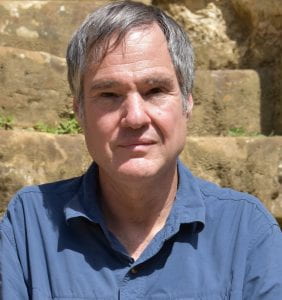 Matthew H. Johnson, Kenneth F. Burgess Professor of Anthropology, is an archaeologist specializing in the British Isles in their Atlantic context in the 2nd millennium CE. He has written on castles, traditional houses, “polite” architecture, and landscape, as well as on contributions to understanding historical archaeology around the world. He is the author of Housing Culture: Traditional Architecture in an English Landscape (1993), An Archaeology of Capitalism (1996), Behind the Castle Gate: From Medieval to Renaissance (2002), Ideas of Landscape (2006), Archaeological Theory: An Introduction (2010; 3rd revised edition 2019), and English Houses 1300-1800: Vernacular Architecture, Social Life (Longman, 2010). In 2019 he won a Guggenheim fellowship to write a book on the archaeology of the English in the Atlantic world, tracing the settlement and landscape of New World colonial settlement back to early modern and medieval antecedents and still further back to the early Middle Ages and beyond. He has taught graduate seminars on “Archaeological Theory,” “Logic of Enquiry in Archaeology,” and “Buildings Archaeology.” This site presents the fieldwork he directed with Northwestern students on castles and great houses in south-eastern England, in collaboration with the National Trust and the University of Southampton. matthew-johnson@northwestern.edu
Matthew H. Johnson, Kenneth F. Burgess Professor of Anthropology, is an archaeologist specializing in the British Isles in their Atlantic context in the 2nd millennium CE. He has written on castles, traditional houses, “polite” architecture, and landscape, as well as on contributions to understanding historical archaeology around the world. He is the author of Housing Culture: Traditional Architecture in an English Landscape (1993), An Archaeology of Capitalism (1996), Behind the Castle Gate: From Medieval to Renaissance (2002), Ideas of Landscape (2006), Archaeological Theory: An Introduction (2010; 3rd revised edition 2019), and English Houses 1300-1800: Vernacular Architecture, Social Life (Longman, 2010). In 2019 he won a Guggenheim fellowship to write a book on the archaeology of the English in the Atlantic world, tracing the settlement and landscape of New World colonial settlement back to early modern and medieval antecedents and still further back to the early Middle Ages and beyond. He has taught graduate seminars on “Archaeological Theory,” “Logic of Enquiry in Archaeology,” and “Buildings Archaeology.” This site presents the fieldwork he directed with Northwestern students on castles and great houses in south-eastern England, in collaboration with the National Trust and the University of Southampton. matthew-johnson@northwestern.edu
 Rebecca Johnson, Associate Professor of English and the Alice Kaplan Institute for the Humanities, teaches and writes about the intersection of British and Arabic literatures in the eighteenth through twentieth centuries. Her research focuses on the history and theory of the novel in Arabic and English, comparative European and Middle Eastern “Enlightenment” movements, and literary orientalism and occidentalism; her wider interests include cosmopolitanism and the poetics and politics of translation. She is currently working on a book project that studies the intertwined early histories of the Arabic and English novels, using translation as a lens through which to understand the form and function of the genre in a transnational or global framework. rebecca-johnson-0@northwestern.edu
Rebecca Johnson, Associate Professor of English and the Alice Kaplan Institute for the Humanities, teaches and writes about the intersection of British and Arabic literatures in the eighteenth through twentieth centuries. Her research focuses on the history and theory of the novel in Arabic and English, comparative European and Middle Eastern “Enlightenment” movements, and literary orientalism and occidentalism; her wider interests include cosmopolitanism and the poetics and politics of translation. She is currently working on a book project that studies the intertwined early histories of the Arabic and English novels, using translation as a lens through which to understand the form and function of the genre in a transnational or global framework. rebecca-johnson-0@northwestern.edu
 Jules Law, Professor of English and Comparative Literature, is the author of The Rhetoric of Empiricism: Language and Perception from Locke to I. A. Richards (1993) and The Social Life of Fluids: Blood, Milk, and Water in the Victorian Novel (Cornell, 2010). His essays on various literary and theoretical topics have appeared in PMLA, Critical Inquiry, SIGNS, NLH, Victorian Studies, and other journals, and portions of his current book project, Being There: Technologies of Immediation in the Nineteenth-Century Novel, have appeared recently in ELH, Novel, and Nineteenth-Century Literature. Recent graduate seminar offerings include “Virtuality in the Nineteenth Century Novel,” “Victorian Fluids,” and “Triangles and Mirrors: Identity in the Victorian Novel.” jlaw@northwestern.edu
Jules Law, Professor of English and Comparative Literature, is the author of The Rhetoric of Empiricism: Language and Perception from Locke to I. A. Richards (1993) and The Social Life of Fluids: Blood, Milk, and Water in the Victorian Novel (Cornell, 2010). His essays on various literary and theoretical topics have appeared in PMLA, Critical Inquiry, SIGNS, NLH, Victorian Studies, and other journals, and portions of his current book project, Being There: Technologies of Immediation in the Nineteenth-Century Novel, have appeared recently in ELH, Novel, and Nineteenth-Century Literature. Recent graduate seminar offerings include “Virtuality in the Nineteenth Century Novel,” “Victorian Fluids,” and “Triangles and Mirrors: Identity in the Victorian Novel.” jlaw@northwestern.edu
 Jeffrey Masten, Professor of English and of Gender and Sexuality Studies, specializes in English literature and culture of the sixteenth and seventeenth centuries, book history, and the history of sexualities. His book, Queer Philologies: Language, Sex, and Affect in Shakespeare’s Time, is forthcoming from the University of Pennsylvania Press. He has published Textual Intercourse: Collaboration, Authorship, and Sexualities in Renaissance Drama (Cambridge, 1997), and, with Peter Stallybrass and Nancy J. Vickers, co-edited Language Machines: Technologies of Literary and Cultural Production (1997). For the Oxford University Press Thomas Middleton: The Collected Works (2007), he edited the collaborative play The Old Law. Currently he is editing Christopher Marlowe’s Edward II for the Arden Early Modern Drama series; his research on the early readers of the play in relation to sodomy and heresy has been published in the TLS. j-masten@northwestern.edu
Jeffrey Masten, Professor of English and of Gender and Sexuality Studies, specializes in English literature and culture of the sixteenth and seventeenth centuries, book history, and the history of sexualities. His book, Queer Philologies: Language, Sex, and Affect in Shakespeare’s Time, is forthcoming from the University of Pennsylvania Press. He has published Textual Intercourse: Collaboration, Authorship, and Sexualities in Renaissance Drama (Cambridge, 1997), and, with Peter Stallybrass and Nancy J. Vickers, co-edited Language Machines: Technologies of Literary and Cultural Production (1997). For the Oxford University Press Thomas Middleton: The Collected Works (2007), he edited the collaborative play The Old Law. Currently he is editing Christopher Marlowe’s Edward II for the Arden Early Modern Drama series; his research on the early readers of the play in relation to sodomy and heresy has been published in the TLS. j-masten@northwestern.edu
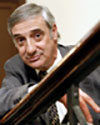 Joel Mokyr, Robert H. Strotz Professor of Arts and Sciences and Professor of Economics and History, works in Economic History, specializing in European economic growth and the industrial revolution. Among his books are The British Industrial Revolution (2nd ed., 1999), The Gifts of Athena (2002), and The Enlightened Economy: An Economic History of Britain 1700-1850 (Yale, 2009). He offers a graduate seminar in European Economic History each year. j-mokyr@northwestern.edu
Joel Mokyr, Robert H. Strotz Professor of Arts and Sciences and Professor of Economics and History, works in Economic History, specializing in European economic growth and the industrial revolution. Among his books are The British Industrial Revolution (2nd ed., 1999), The Gifts of Athena (2002), and The Enlightened Economy: An Economic History of Britain 1700-1850 (Yale, 2009). He offers a graduate seminar in European Economic History each year. j-mokyr@northwestern.edu
 Evan Mwangi, Melville J. Herskovits Professor of African Studies; Professor of English, specializes in Anglophone and postcolonial literature, with a comparative emphasis on both relative to mainstream British literature and culture. His classes examine the works of such authors as V. S. Naipaul, Grace Nichols, Kazuo Ishiguro, Samuel Selvon, Monica Ali, Caryl Phillips, Salman Rushdie, Ngugi wa Thiong’o, Buchi Emecheta, and Chinua Achebe in terms of their engagement with migration and postcolonial concerns. The author of Africa Writes Back to Self: Metafiction, Gender, Sexuality (SUNY, 2009), his current project includes analysis of experimental fiction by African, Asian, and Caribbean writers in Britain. evan-mwangi@northwestern.edu
Evan Mwangi, Melville J. Herskovits Professor of African Studies; Professor of English, specializes in Anglophone and postcolonial literature, with a comparative emphasis on both relative to mainstream British literature and culture. His classes examine the works of such authors as V. S. Naipaul, Grace Nichols, Kazuo Ishiguro, Samuel Selvon, Monica Ali, Caryl Phillips, Salman Rushdie, Ngugi wa Thiong’o, Buchi Emecheta, and Chinua Achebe in terms of their engagement with migration and postcolonial concerns. The author of Africa Writes Back to Self: Metafiction, Gender, Sexuality (SUNY, 2009), his current project includes analysis of experimental fiction by African, Asian, and Caribbean writers in Britain. evan-mwangi@northwestern.edu
 Kennetta Hammond Perry, Associate Professor of African American Studies with a courtesy appointment in History, specializes in Black British history, transnational race politics, the African Diaspora in Europe and histories of statecrafted racial violence. Her first book, London Is The Place For Me: Black Britons, Citizenship and the Politics of Race (Oxford, 2016) examined how a largely African Caribbean migrant community of Black Britons articulated claims to citizenship and publicly challenged the state to both acknowledge and remedy the ways in which anti-Black racism came to bear upon their lives in the decades following World War II. She has published widely on such topics including Black women’s activism in Britain, Black British abolitionism and on the political uses of history. Currently she is completing a second book examining the life, death and legacy of David Oluwale, a Nigerian-born man thought to have been murdered by police in Leeds, England in 1969. Additionally, she is co-investigator on an AHRC-funded project examining community engaged histories of Black Power in the East Midlands. kennetta.perry@northwestern.edu
Kennetta Hammond Perry, Associate Professor of African American Studies with a courtesy appointment in History, specializes in Black British history, transnational race politics, the African Diaspora in Europe and histories of statecrafted racial violence. Her first book, London Is The Place For Me: Black Britons, Citizenship and the Politics of Race (Oxford, 2016) examined how a largely African Caribbean migrant community of Black Britons articulated claims to citizenship and publicly challenged the state to both acknowledge and remedy the ways in which anti-Black racism came to bear upon their lives in the decades following World War II. She has published widely on such topics including Black women’s activism in Britain, Black British abolitionism and on the political uses of history. Currently she is completing a second book examining the life, death and legacy of David Oluwale, a Nigerian-born man thought to have been murdered by police in Leeds, England in 1969. Additionally, she is co-investigator on an AHRC-funded project examining community engaged histories of Black Power in the East Midlands. kennetta.perry@northwestern.edu
 Yuthika Sharma, Assistant Professor of Art History, works on empire and visual culture in early modern and colonial South Asia. Her research spans topics on Mughal India, colonialism and culture, gender, and labor relations. She has published on a range of topics such as portraiture and the practice of proto-colonial survey strategies, the contested art history of ivory souvenirs, silversmithing and design history, as well as the role of “oriental” commodities in the British domestic sphere. Dr Sharma’s most recent research is on the art historiography of 18th century India. She is currently working on her book project on the nature of artistic revival and artisanal knowledge in Anglo-Mughal India’s long 18th century before the rise of nationalism. Previously, Dr Sharma’s co-authored book Princes and Painters in Mughal Delhi 1707-1857 (New Haven: Yale University Press, 2013), with the historian and novelist William Dalrymple, focused on artistic identity in late Mughal India. Her research has been supported by the Leverhulme Trust, The Arts and Humanities Research Council and the Paul Mellon Centre for British Art. yuthika.sharma@northwestern.edu
Yuthika Sharma, Assistant Professor of Art History, works on empire and visual culture in early modern and colonial South Asia. Her research spans topics on Mughal India, colonialism and culture, gender, and labor relations. She has published on a range of topics such as portraiture and the practice of proto-colonial survey strategies, the contested art history of ivory souvenirs, silversmithing and design history, as well as the role of “oriental” commodities in the British domestic sphere. Dr Sharma’s most recent research is on the art historiography of 18th century India. She is currently working on her book project on the nature of artistic revival and artisanal knowledge in Anglo-Mughal India’s long 18th century before the rise of nationalism. Previously, Dr Sharma’s co-authored book Princes and Painters in Mughal Delhi 1707-1857 (New Haven: Yale University Press, 2013), with the historian and novelist William Dalrymple, focused on artistic identity in late Mughal India. Her research has been supported by the Leverhulme Trust, The Arts and Humanities Research Council and the Paul Mellon Centre for British Art. yuthika.sharma@northwestern.edu
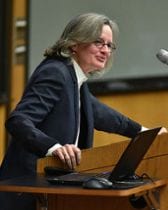 Laurie Shannon, Franklyn Bliss Snyder Professor and Chair of English, specializes in English literature of the long sixteenth century—from the rise of the printed book in the late 1400s to the beheading of Charles I in 1649. She is interested in the history of ideas, especially regarding sovereignty; law, medicine, and science; species; political imagination and stakeholdership; and the corporate form. Her first book, Sovereign Amity: Figures of Friendship in Shakespearean Contexts (2002), concerns bureaucracy, gender, agency, sexuality, and consent in early modern appropriations of classical friendship principles. Shannon’s second book extends constitutionalist questions beyond their familiar borders: The Accommodated Animal: Cosmopolity in Shakespearean Locales (Chicago, 2013), which won the Elizabeth Dietz Memorial Award for the best recent book in English Renaissance literary studies, considers the political terms of pre-Cartesian dispensations across species. l-shannon@northwestern.edu
Laurie Shannon, Franklyn Bliss Snyder Professor and Chair of English, specializes in English literature of the long sixteenth century—from the rise of the printed book in the late 1400s to the beheading of Charles I in 1649. She is interested in the history of ideas, especially regarding sovereignty; law, medicine, and science; species; political imagination and stakeholdership; and the corporate form. Her first book, Sovereign Amity: Figures of Friendship in Shakespearean Contexts (2002), concerns bureaucracy, gender, agency, sexuality, and consent in early modern appropriations of classical friendship principles. Shannon’s second book extends constitutionalist questions beyond their familiar borders: The Accommodated Animal: Cosmopolity in Shakespearean Locales (Chicago, 2013), which won the Elizabeth Dietz Memorial Award for the best recent book in English Renaissance literary studies, considers the political terms of pre-Cartesian dispensations across species. l-shannon@northwestern.edu
 Vivasvan Soni, Associate Professor of English, specializes in eighteenth-century British literature, with strong additional interests in the history of philosophy, genre theory, poststructuralism, and utopian writing. His book, Mourning Happiness: Narrative and the Politics of Modernity (Cornell, 2010), awarded the Modern Language Association’s eighteenth annual Prize for a First Book, traces the narrative processes by which modern ideas of happiness came to emerge in the eighteenth century. He recently edited a special issue of The Eighteenth Century: Theory and Interpretation (51.3) on “The Crisis of Judgment.” He is currently at work on two new projects: Aesthetics and the Crisis of Judgment, on the problem of judgment in eighteenth-century novels, moral philosophy and aesthetics, for which he received a Newberry fellowship in 2014-15 and an ACLS fellowship in 2018-19; and the fate of utopian writing and thinking in modernity. With Thomas Pfau, he recently edited Judgment and Action (Northwestern, 2018), a collection of essays emerging out of two symposia on “Basic Concepts in the Humanities,” and, also with Pfau, Beauty and Form, a special issue of the online journal Republics of Letters. Recent graduate seminars include “Realism and Utopia in the Eighteenth-Century Novel,” “Empiricism, Judgment, and the Emergence of the Aesthetic in the Eighteenth Century,” “Experience and Meaning in the Eighteenth-Century Novel,” and “Theories of Play.” v-soni@northwestern.edu
Vivasvan Soni, Associate Professor of English, specializes in eighteenth-century British literature, with strong additional interests in the history of philosophy, genre theory, poststructuralism, and utopian writing. His book, Mourning Happiness: Narrative and the Politics of Modernity (Cornell, 2010), awarded the Modern Language Association’s eighteenth annual Prize for a First Book, traces the narrative processes by which modern ideas of happiness came to emerge in the eighteenth century. He recently edited a special issue of The Eighteenth Century: Theory and Interpretation (51.3) on “The Crisis of Judgment.” He is currently at work on two new projects: Aesthetics and the Crisis of Judgment, on the problem of judgment in eighteenth-century novels, moral philosophy and aesthetics, for which he received a Newberry fellowship in 2014-15 and an ACLS fellowship in 2018-19; and the fate of utopian writing and thinking in modernity. With Thomas Pfau, he recently edited Judgment and Action (Northwestern, 2018), a collection of essays emerging out of two symposia on “Basic Concepts in the Humanities,” and, also with Pfau, Beauty and Form, a special issue of the online journal Republics of Letters. Recent graduate seminars include “Realism and Utopia in the Eighteenth-Century Novel,” “Empiricism, Judgment, and the Emergence of the Aesthetic in the Eighteenth Century,” “Experience and Meaning in the Eighteenth-Century Novel,” and “Theories of Play.” v-soni@northwestern.edu
 Scott Sowerby, Associate Professor of History, teaches and studies early modern Britain and Europe with a particular interest in comparative history and transnational issues, including religious toleration, state formation, and military power. His book, Making Toleration: The Repealers and the Glorious Revolution (Harvard, 2013), was awarded the Royal Historical Society’s Whitfield Prize for the best first book in British or Irish history. He is the author of articles in Past & Present, Historical Journal, the Journal of British Studies, and the English Historical Review. He is currently working on a book entitled Absolution and Arms: The Violent Origins of Religious Toleration in Early Modern Europe, a comparative study exploring the experiences of religious minorities in European militaries, for which he received a National Endowment for the Humanities Fellowship in 2020-21. He teaches courses on early modern Britain, early modern Europe, the history of gender and sexuality, and the global history of piracy. sowerby@northwestern.edu
Scott Sowerby, Associate Professor of History, teaches and studies early modern Britain and Europe with a particular interest in comparative history and transnational issues, including religious toleration, state formation, and military power. His book, Making Toleration: The Repealers and the Glorious Revolution (Harvard, 2013), was awarded the Royal Historical Society’s Whitfield Prize for the best first book in British or Irish history. He is the author of articles in Past & Present, Historical Journal, the Journal of British Studies, and the English Historical Review. He is currently working on a book entitled Absolution and Arms: The Violent Origins of Religious Toleration in Early Modern Europe, a comparative study exploring the experiences of religious minorities in European militaries, for which he received a National Endowment for the Humanities Fellowship in 2020-21. He teaches courses on early modern Britain, early modern Europe, the history of gender and sexuality, and the global history of piracy. sowerby@northwestern.edu
 Helen Thompson, Professor of English, specializes in eighteenth-century British literature, with additional interests in philosophy, gender studies, and the history of science. Her most-recent book, Fictional Matter: Empiricism, Corpuscles, and the Novel (Penn, 2017), argues for the influence of chemical matter theory on ontology and form in the eighteenth-century British novel. She is also the author of Ingenuous Subjection: Compliance and Power in the Eighteenth-Century Domestic Novel (2005); of articles in ELH, Eighteenth-Century Studies, The Eighteenth Century: Theory and Interpretation, and Eighteenth-Century Fiction; and of chapters in The Oxford History of the Novel in English and The Cambridge Companion to Robinson Crusoe, among others. She is currently at work on a project tentatively entitled “Alchemy’s Culture: Radical Change in Early Modernity.” hthompson@northwestern.edu
Helen Thompson, Professor of English, specializes in eighteenth-century British literature, with additional interests in philosophy, gender studies, and the history of science. Her most-recent book, Fictional Matter: Empiricism, Corpuscles, and the Novel (Penn, 2017), argues for the influence of chemical matter theory on ontology and form in the eighteenth-century British novel. She is also the author of Ingenuous Subjection: Compliance and Power in the Eighteenth-Century Domestic Novel (2005); of articles in ELH, Eighteenth-Century Studies, The Eighteenth Century: Theory and Interpretation, and Eighteenth-Century Fiction; and of chapters in The Oxford History of the Novel in English and The Cambridge Companion to Robinson Crusoe, among others. She is currently at work on a project tentatively entitled “Alchemy’s Culture: Radical Change in Early Modernity.” hthompson@northwestern.edu
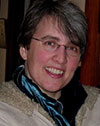 Helen Tilley, Associate Professor of History, examines medical, environmental, and human sciences in colonial and post-colonial Africa, emphasizing intersections with environmental history, development studies, and British and world history. Her book Africa as a Living Laboratory: Empire, Development, and the Problem of Scientific Knowledge (Chicago, 2011), awarded the Ludwik Fleck Prize from the Society for Social Studies of Science, explores the dynamic interplay between scientific research and imperialism in British Africa between 1870 and 1950. She has also written articles and book chapters on the history of ecology, eugenics, agriculture, and epidemiology in tropical Africa, and is co-editor with Robert Gordon of Ordering Africa: Anthropology, European Imperialism, and the Politics of Knowledge (Manchester, 2007) and, with Michael Gordin and Gyan Prakash, of Utopia-Dystopia: Historical Conditions of Possibility (Princeton, 2010). Her current project focuses on the history of African decolonization, global governance, and the ethnoscientific projects that accompanied post-colonial state building in the Cold War era. At Northwestern, she is affiliated with the programs in African Studies, Science in Human Culture, Global Health, and Environmental Policy and Culture. Her courses focus on the history of racial science, medical pluralism in Africa, global health, and environmental concerns around the world. helen.tilley@northwestern.edu
Helen Tilley, Associate Professor of History, examines medical, environmental, and human sciences in colonial and post-colonial Africa, emphasizing intersections with environmental history, development studies, and British and world history. Her book Africa as a Living Laboratory: Empire, Development, and the Problem of Scientific Knowledge (Chicago, 2011), awarded the Ludwik Fleck Prize from the Society for Social Studies of Science, explores the dynamic interplay between scientific research and imperialism in British Africa between 1870 and 1950. She has also written articles and book chapters on the history of ecology, eugenics, agriculture, and epidemiology in tropical Africa, and is co-editor with Robert Gordon of Ordering Africa: Anthropology, European Imperialism, and the Politics of Knowledge (Manchester, 2007) and, with Michael Gordin and Gyan Prakash, of Utopia-Dystopia: Historical Conditions of Possibility (Princeton, 2010). Her current project focuses on the history of African decolonization, global governance, and the ethnoscientific projects that accompanied post-colonial state building in the Cold War era. At Northwestern, she is affiliated with the programs in African Studies, Science in Human Culture, Global Health, and Environmental Policy and Culture. Her courses focus on the history of racial science, medical pluralism in Africa, global health, and environmental concerns around the world. helen.tilley@northwestern.edu
 Wendy Wall, Avalon Foundation Professor in the Humanities, Professor of English, specializes in early modern British literature and culture. She is author of The Imprint of Gender: Authorship and Publication in the English Renaissance (1993), Staging Domesticity: Household Work and English Identity in Early Modern Drama (Cambridge, 2002), a finalist for the James Russell Lowell prize awarded by the MLA and a 2002 Choice Outstanding Academic Title Award Winner, and Recipes for Thought: Knowledge and Taste in the Early Modern Kitchen (University of Pennsylvania Press, 2015). An award-winning teacher, she has published and offered courses on topics as wide-ranging as Renaissance poetry, cookbooks, domesticity, the history of the book, gender, national identity, authorship, women’s writing, Shakespeare, and theatrical practice. She gives public lecturers in conjunction with the Chicago Shakespeare Theater and with the Newberry Library in Chicago and has served as a trustee of the Shakespeare Association of America. w-wall@northwestern.edu
Wendy Wall, Avalon Foundation Professor in the Humanities, Professor of English, specializes in early modern British literature and culture. She is author of The Imprint of Gender: Authorship and Publication in the English Renaissance (1993), Staging Domesticity: Household Work and English Identity in Early Modern Drama (Cambridge, 2002), a finalist for the James Russell Lowell prize awarded by the MLA and a 2002 Choice Outstanding Academic Title Award Winner, and Recipes for Thought: Knowledge and Taste in the Early Modern Kitchen (University of Pennsylvania Press, 2015). An award-winning teacher, she has published and offered courses on topics as wide-ranging as Renaissance poetry, cookbooks, domesticity, the history of the book, gender, national identity, authorship, women’s writing, Shakespeare, and theatrical practice. She gives public lecturers in conjunction with the Chicago Shakespeare Theater and with the Newberry Library in Chicago and has served as a trustee of the Shakespeare Association of America. w-wall@northwestern.edu
 Tristram Wolff, Assistant Professor of English, writes and teaches about 18th- and 19th-century British literature, as well as comparative and transatlantic Romanticisms, critical theory, poetry and poetics, and the environmental humanities. His current book project, Frail Bonds: Romantic Etymology and Language Ecology, outlines a poetics emerging from transatlantic Romanticism that transported the origins of language from the depths of the past to an ongoing present, in answer to the ethnocentric primitivism of the Enlightenment. Wolff’s articles have appeared or are forthcoming in Essays in Romanticism, European Romantic Review, Representations, ELH, and PMLA. A newer book project in its early stages comprises a series of essays revolving around the Romantic essayist William Hazlitt, and aims to show how Romantic-era writing on the passions has shaped contemporary debates about affect and emotion in our habits of critical reading. He has taught classes on comedy and gender, poetry and geology, and representations of resource extraction in fiction and film. triswolff@northwestern.edu
Tristram Wolff, Assistant Professor of English, writes and teaches about 18th- and 19th-century British literature, as well as comparative and transatlantic Romanticisms, critical theory, poetry and poetics, and the environmental humanities. His current book project, Frail Bonds: Romantic Etymology and Language Ecology, outlines a poetics emerging from transatlantic Romanticism that transported the origins of language from the depths of the past to an ongoing present, in answer to the ethnocentric primitivism of the Enlightenment. Wolff’s articles have appeared or are forthcoming in Essays in Romanticism, European Romantic Review, Representations, ELH, and PMLA. A newer book project in its early stages comprises a series of essays revolving around the Romantic essayist William Hazlitt, and aims to show how Romantic-era writing on the passions has shaped contemporary debates about affect and emotion in our habits of critical reading. He has taught classes on comedy and gender, poetry and geology, and representations of resource extraction in fiction and film. triswolff@northwestern.edu
EMERITI
 Stephen Eisenman, Professor of Art History, has written nine books on a wide variety of topics. In 2014, he published two on the subject of art and animals with an English focus: The Cry of Nature: Art and the Making of Animal Rights (2013) and The Ghosts of Our Meat (2014). His article “The Real Swinish Multitude” appeared in Critical Inquiry in Winter 2016. Eisenman is also an independent curator. His exhibition for the Block Art Museum at Northwestern, “William Blake and the Age of Aquarius,” opened in September 2017. He is the co-founder and art director of an environmental nonprofit called Anthropocene Alliance. s-eisenman@northwestern.edu
Stephen Eisenman, Professor of Art History, has written nine books on a wide variety of topics. In 2014, he published two on the subject of art and animals with an English focus: The Cry of Nature: Art and the Making of Animal Rights (2013) and The Ghosts of Our Meat (2014). His article “The Real Swinish Multitude” appeared in Critical Inquiry in Winter 2016. Eisenman is also an independent curator. His exhibition for the Block Art Museum at Northwestern, “William Blake and the Age of Aquarius,” opened in September 2017. He is the co-founder and art director of an environmental nonprofit called Anthropocene Alliance. s-eisenman@northwestern.edu
 James Farr is Professor of Political Science and Director of the Chicago Field Studies at Northwestern. His interests in British Studies turn principally on the political thought of Locke, Hobbes, and Hume in the early modern period, as well as the history of the discipline of political science in which British works figure prominently. He is the author of, among others, “Locke, ‘Some Americans,’ and the Discourse on ‘Carolina’” (in Locke Studies) and “The Transactions of European-American Political Science” (in European Political Science). Co-editor of The General Will: The Evolution of a Concept (Cambridge 2015), he has contributed an account of the entanglements of Locke, Malebranche and Rousseau. Co-editor, as well, of the Cambridge Companion to the Communist Manifesto, he has now completed a short reception history of the Manifesto by Anglophone liberal theorists from Russell to Rawls. james-farr@northwestern.edu
James Farr is Professor of Political Science and Director of the Chicago Field Studies at Northwestern. His interests in British Studies turn principally on the political thought of Locke, Hobbes, and Hume in the early modern period, as well as the history of the discipline of political science in which British works figure prominently. He is the author of, among others, “Locke, ‘Some Americans,’ and the Discourse on ‘Carolina’” (in Locke Studies) and “The Transactions of European-American Political Science” (in European Political Science). Co-editor of The General Will: The Evolution of a Concept (Cambridge 2015), he has contributed an account of the entanglements of Locke, Malebranche and Rousseau. Co-editor, as well, of the Cambridge Companion to the Communist Manifesto, he has now completed a short reception history of the Manifesto by Anglophone liberal theorists from Russell to Rawls. james-farr@northwestern.edu
 Michal P. Ginsburg, Professor of French and Comparative Literature and Director of the Program in Comparative Literary Studies, studies the nineteenth-century novel, including in Britain. Her books include Economies of Change: Form and Transformation in the Nineteenth-Century Novel (Stanford, 1996), and she is writing a comparative book project on nineteenth-century narratives that center around portraits. m-ginsburg@northwestern.edu
Michal P. Ginsburg, Professor of French and Comparative Literature and Director of the Program in Comparative Literary Studies, studies the nineteenth-century novel, including in Britain. Her books include Economies of Change: Form and Transformation in the Nineteenth-Century Novel (Stanford, 1996), and she is writing a comparative book project on nineteenth-century narratives that center around portraits. m-ginsburg@northwestern.edu
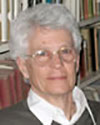 Christopher Herbert, Chester D. Tripp Professor of Humanities and Professor of English, specializes in the Victorian novel and in nineteenth-century British cultural and intellectual history, with a particular interest in science studies. His books include Trollope and Comic Pleasure (1987), Culture and Anomie: Ethnographic Imagination in the Nineteenth Century (1991), Victorian Relativity: Radical Thought and Scientific Discovery (2001), War of No Pity: The Indian Mutiny and Victorian Trauma (2008), and, most recently, Evangelical Gothic: The English Novel and the Religious War on Virtue from Wesley to Dracula (Virginia, 2019). His most recent graduate-seminar offerings include “Varieties of Victorian Religious Experience,” “Dickens and Mayhew,” and “Victorian Novel and Society.” c-herbert@northwestern.edu
Christopher Herbert, Chester D. Tripp Professor of Humanities and Professor of English, specializes in the Victorian novel and in nineteenth-century British cultural and intellectual history, with a particular interest in science studies. His books include Trollope and Comic Pleasure (1987), Culture and Anomie: Ethnographic Imagination in the Nineteenth Century (1991), Victorian Relativity: Radical Thought and Scientific Discovery (2001), War of No Pity: The Indian Mutiny and Victorian Trauma (2008), and, most recently, Evangelical Gothic: The English Novel and the Religious War on Virtue from Wesley to Dracula (Virginia, 2019). His most recent graduate-seminar offerings include “Varieties of Victorian Religious Experience,” “Dickens and Mayhew,” and “Victorian Novel and Society.” c-herbert@northwestern.edu
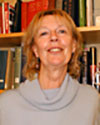 Alexandra Owen, Professor of History and Gender Studies, is a social and cultural historian specializing in nineteenth- and twentieth-century Britain. Her research interests include interdisciplinary approaches to questions of gender and sexuality; the history of medicine, psychology, and psychoanalysis; and religion and modern heterodox spiritualities. She is the author of The Darkened Room: Women, Power and Spiritualism in Late Victorian England (1989) and The Place of Enchantment: British Occultism and the Culture of the Modern (Chicago, 2004). She is currently working on a book tentatively called Culture, Psyche and the Soul in Early Twentieth Century Britain, which investigates the post-World War 1 attempt to reconcile different forms of spirituality with a new (often Freudian) dynamic model of the mind. Appointed the Board of Lady Managers Professor from 2004-06 in recognition of her scholarship, teaching, and mentoring of students, Owen regularly taught British history, a large undergraduate class on the history of feminist thought, and a 405 seminar introducing graduate students to theoretical and methodological issues in women’s and gender history. a-owen@northwestern.edu
Alexandra Owen, Professor of History and Gender Studies, is a social and cultural historian specializing in nineteenth- and twentieth-century Britain. Her research interests include interdisciplinary approaches to questions of gender and sexuality; the history of medicine, psychology, and psychoanalysis; and religion and modern heterodox spiritualities. She is the author of The Darkened Room: Women, Power and Spiritualism in Late Victorian England (1989) and The Place of Enchantment: British Occultism and the Culture of the Modern (Chicago, 2004). She is currently working on a book tentatively called Culture, Psyche and the Soul in Early Twentieth Century Britain, which investigates the post-World War 1 attempt to reconcile different forms of spirituality with a new (often Freudian) dynamic model of the mind. Appointed the Board of Lady Managers Professor from 2004-06 in recognition of her scholarship, teaching, and mentoring of students, Owen regularly taught British history, a large undergraduate class on the history of feminist thought, and a 405 seminar introducing graduate students to theoretical and methodological issues in women’s and gender history. a-owen@northwestern.edu
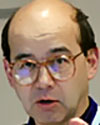 Hendrik Spruyt, Norman Dwight Harris Professor of International Relations in Political Science, is the author of The Sovereign State and Its Competitors (1994), on the emergence of sovereignty in early modern Europe. His Ending Empire: Contested Sovereignty and Territorial Partition (2005) analyzed why the British withdrawal from its colonies stood in marked contrast to that of other European powers, such as France, the Netherlands, and Portugal. Co-authored with Alexander Cooley, Contracting States: Sovereign Transfers in International Relations (Princeton, 2009) examines how states such as Britain maintained close relations with their erstwhile colonies, while at the same time regional organizations such as the European Union have eroded British sovereignty. Recent publications include “Unbundling Sovereign Rights through Incomplete Contracting: Empowering European Transnational Networks beyond the State,” in Reconfiguring European States in Crisis (Cambridge, 2017). h-spruyt@northwestern.edu
Hendrik Spruyt, Norman Dwight Harris Professor of International Relations in Political Science, is the author of The Sovereign State and Its Competitors (1994), on the emergence of sovereignty in early modern Europe. His Ending Empire: Contested Sovereignty and Territorial Partition (2005) analyzed why the British withdrawal from its colonies stood in marked contrast to that of other European powers, such as France, the Netherlands, and Portugal. Co-authored with Alexander Cooley, Contracting States: Sovereign Transfers in International Relations (Princeton, 2009) examines how states such as Britain maintained close relations with their erstwhile colonies, while at the same time regional organizations such as the European Union have eroded British sovereignty. Recent publications include “Unbundling Sovereign Rights through Incomplete Contracting: Empowering European Transnational Networks beyond the State,” in Reconfiguring European States in Crisis (Cambridge, 2017). h-spruyt@northwestern.edu